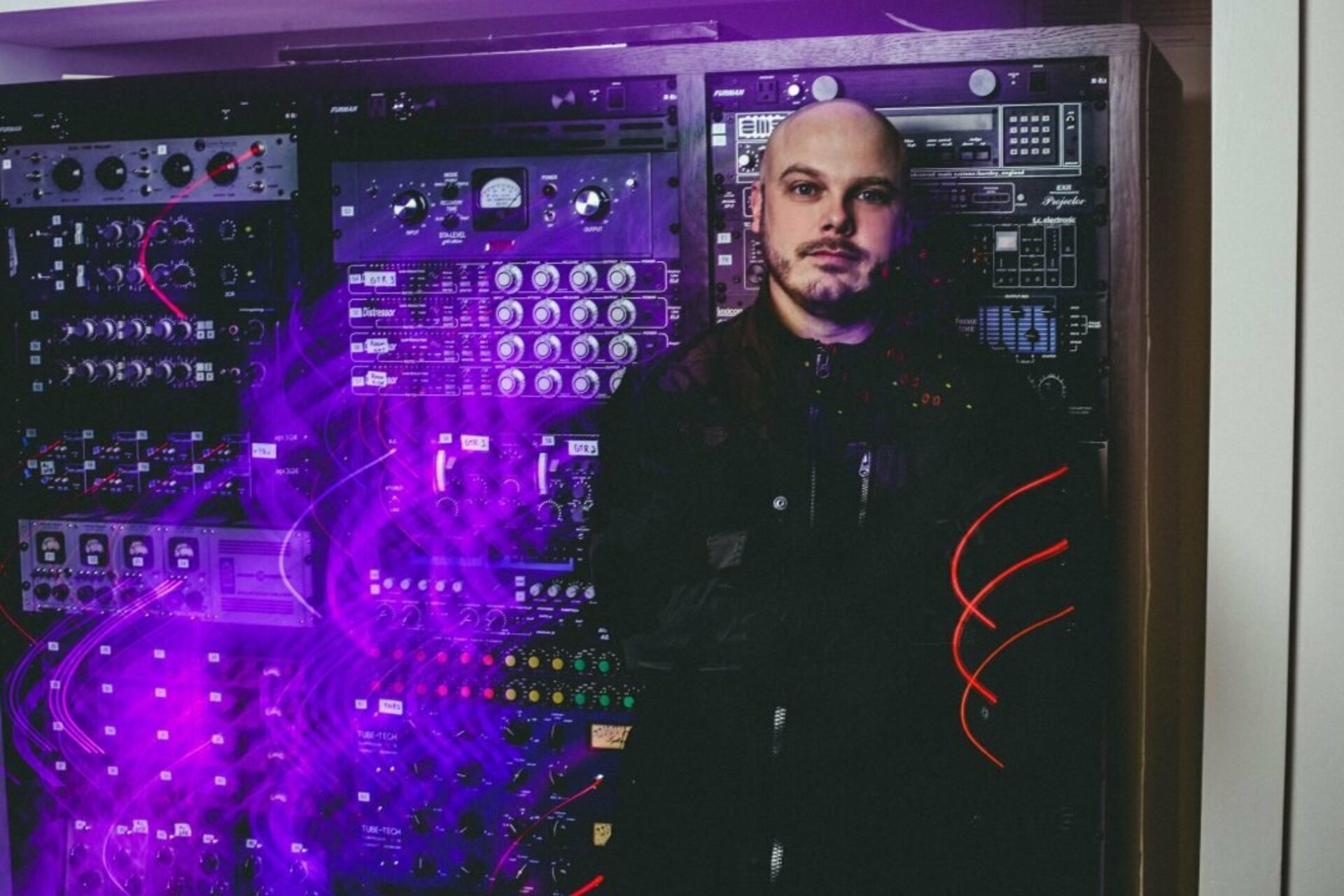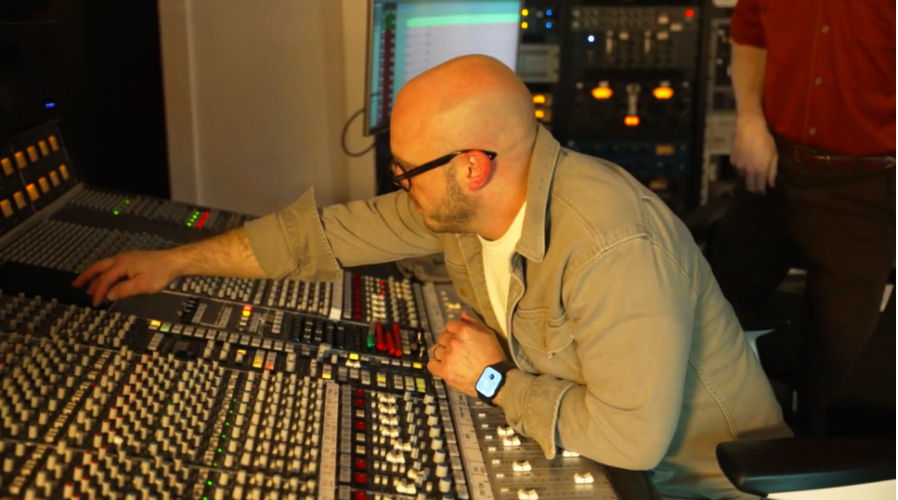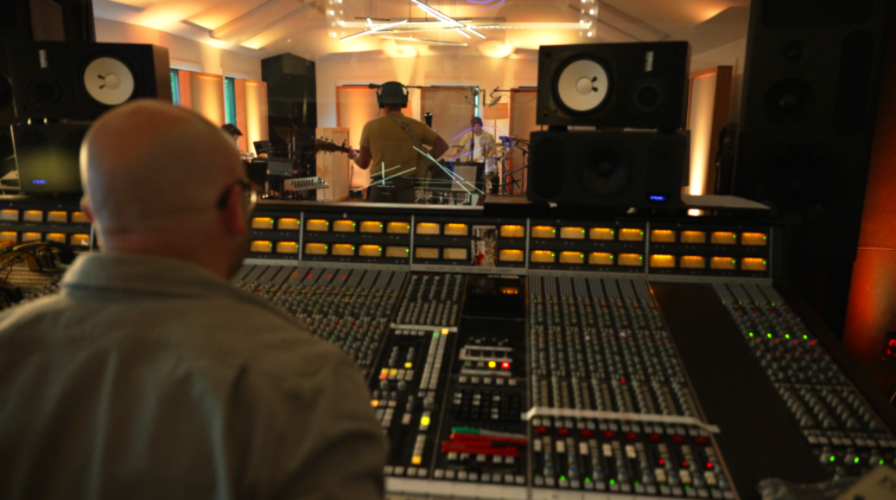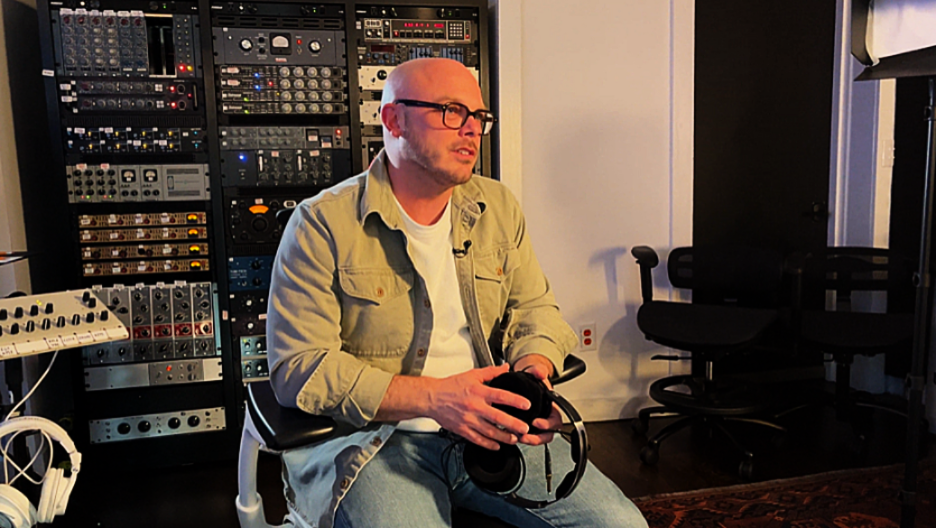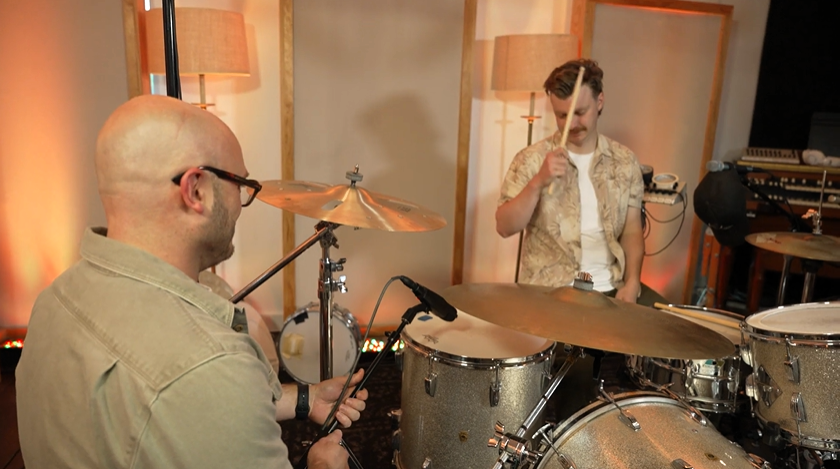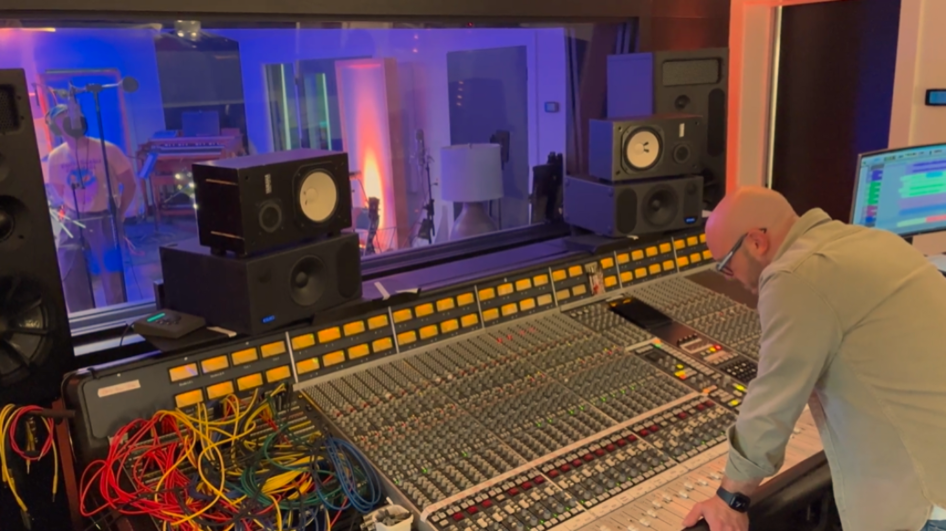Justin Cortelyou has built an impressive record producer and engineer career, working alongside industry giants like
Chuck Ainlay, Mike Shipley, and Bob Ezrin. His journey has taken him from Pennsylvania to Los Angeles and Nashville (twice), operating out of
Soultrain Sound Studios. In this exclusive interview, Justin discusses his experiences in Nashville, along with his passion for capturing the perfect sound and his thoughts on the present and future of the music industry.
How did you get your start in the music industry?
I was always fascinated by gear, even before I knew what any of it really did. I remember getting a Mix magazine in the mail once, and it had this picture of an SSL console with a computer screen in it. I had no idea what it was at the time, but I knew that was what I wanted to do.
It seemed like such a cool job, working with all these amazing bands. So, when it came time for college, I had a tough decision to make. Stay in my hometown of Pittsburgh, where the recording program wasn't that great, or take a chance and go to MTSU (Middle Tennessee State University) near Nashville, which had a
renowned program.
I ended up going to MTSU, and it was the best decision I ever made. Their program was fantastic, but the real game-changer was their internship program. I got to work with legends like Bil VornDick and Chuck Ainlay, and that experience really opened doors for me.
One of your first big breaks after school was working with Mike Shipley (mix/audio engineer, Mutt Lange, Def Leppard, Shania Twain, Aerosmith). What was that like?
Working with Mike was an incredible experience. I had a job at
Sound Stage Studio in Nashville, so they moved me out to LA and I got to work on some pretty awesome records and go through the Mutt Lange / Mike Shipley boot camp of editing and perfection.
He had an assistant, Brian, who showed me how to edit efficiently, the way Mike liked it. Brian taught me the technique, but then he kind of let me figure it out on my own, which was great. I learned a lot that way.
I also got to watch Mike mixing. I had an editing suite upstairs, and he was downstairs, but I could see his screen and hear his mix. So I'd just sit and watch him work, trying to understand his decisions. It was amazing. He was a true mix master. He got incredible sounds without any tricks, just solid technique and hard work.
After working with Mike, you moved back to Nashville and worked with Bob Ezrin. How did that come about?
After working with Mike, I partnered with another producer, Tommy Henriksen, in LA. We were doing a lot of artist development, which was a great experience. But then the housing crisis hit, and things got really expensive. So, I said to Tommy, "Why don't we move to Nashville? It's more affordable, and they're always making music there."
We ended up moving, and the first week we were there, we met Bob Ezrin. He liked that we had that LA studio sound, and we I ended up working with him for about 10 years. It was an amazing experience. Bob was so busy that it ended up being 90% of my work. That was good and bad, though, because there were times when Bob would take a few months off, and I'd be like, "I guess I gotta find some work”.
Today, you're running your own Soultrain Sound Studios just outside Nashville. We hear all the stories of big studios closing down all the time. How do you stay busy in the day of home studios?
It's a constant hustle, that's for sure. It's about building relationships with artists, developing their talent, and helping them succeed. You have to diversify your client base and be willing to wear many hats. It's not always easy, especially with the challenges the industry has faced in recent years, but it's incredibly fulfilling when you see your artists achieve their goals.
You're not only competing with home studios. You have some of the nicest, most well-known recording studios right next door.
It's definitely a challenge, but it's also incredibly rewarding. Nashville is unique in that it has a strong and supportive studio community. We're lucky to be in a location surrounded by other great studios, and there's a real sense of camaraderie. We all help each other out when needed, whether it's lending gear or sharing advice.
I think there will always be a place for these studios. There's something special about working in a dedicated space with top-of-the-line equipment and a team of experienced professionals. We've positioned Soultrain as a boutique studio that offers a comfortable and private environment, and that's been a successful niche for us.
Does that camaraderie extend to Nashville's music scene?
Nashville is a special place. The sense of community here is unlike anything I've experienced anywhere else. Everyone is incredibly supportive, and there's a genuine willingness to collaborate. The musicians here are world-class, and they bring a level of professionalism and efficiency to every session. It's inspiring to be surrounded by so much talent.
Nashville has grown a lot since being a "country music" town. Do you think there's a distinct "Nashville Sound" today?
I think it's constantly evolving, but there's definitely a core sound that's rooted in strong musicianship and a focus on clean, intentional production. But it's not just about country music anymore. There's a vibrant indie and rock scene here as well, and artists are exploring a wide range of styles.
Does your recording process have to change to adapt to the different styles?
Yes. It varies depending on the project. If I'm producing, I always start with pre-production meetings to discuss the artist's vision, the overall tone of the project, and the specific goals for each song. If I'm engineering, I'll have a conversation with the producer to understand their expectations and preferences.
I'll ask, "What's the genre? What are we looking for: interesting sounds, clean sounds? Do you want more room?" Then, I like to offer a wide range of options when it comes to sounds, so I often incorporate texture mics alongside my standard setup. This allows us to experiment and create unique sonic landscapes.
Do you prefer tracking bands live or recording section by section?
I'm very schizophrenic in that sense, because I enjoy it both ways. I enjoy the challenges of a Nashville session where you have 15 minutes to get the drum sounds, and then you have to move on. I love that challenge and the interaction with the band and everything.
But I also love just doing drums and really scoping out a hi-hat sound, like we did on a pop record. We switched out different hats, different mics, and different signal chains just to get the right crunchiness and tone. So, I like taking the myopic approach and really getting the sound and texture that you want on each specific element, or breaking up the elements and creating your own sound.
There's value in all sorts of different approaches. I just really enjoy doing my job, you know?
You've been leaning on your Sennheiser gear to do that job. What do you use and why?
I do. I'm actually up with family in Minneapolis right now, so I've got a little work rig downstairs. Of course, I've got my Sennheisers with me. [Laughs}
I'm using the HD 490 Pros. I use them literally every single day. I can't mix on closed-back headphones. I just find it awkward. I used to use the 650s, and I loved them, but they were a bit too flat for my taste. The 490 Pros have more detail, and the low end is tighter. It's just easier to mix with them. They're also super comfortable, which is important when you're wearing them all day.
And, in the studio, I really like the MD 421 Kompakt. I wasn't a huge fan of the original 421s on toms, but the compacts are different. They have a smaller body, so there's less snare bleed and phasing. It makes the whole drum kit sound tighter and more focused. It's a great mic! I was just watching a
Rick Beato video where they compared the compacts to the vintage 421s, and it was interesting hearing the differences. Each one has its own strengths.
Are there any other essential pieces of gear or plugins you rely on?
There are a few things I always come back to. An
SSL 4000 E channel strip is a must-have for me. I also love
Soundtoys EchoBoy, a classic 140 plate reverb, and some of the
Valhalla reverbs. With those tools, I can pretty much create any sound I need.
A fairly unique thing about your career is your manager. Artists often have managers to help organize their day-to-day business. Is it becoming more common for producers and engineers?
It's not as common in Nashville, but it's become an essential part of my career. My manager,
Andrew Brightman, has been instrumental in helping me navigate the industry, define my goals, and develop a strategy to achieve them. He also handles all the business aspects, like contracts, negotiations, and invoicing, which frees me up to focus on the creative side of things.
Managers are something you obviously have to grow into. What advice would you give to someone just starting out?
The music industry is constantly evolving, so you have to be adaptable and willing to embrace new technologies and approaches. But some things remain constant: the importance of developing your skills, building relationships, and finding your niche. Social media is a powerful tool for marketing yourself and connecting with artists. If you're motivated, entrepreneurial, and passionate about music, there are still plenty of opportunities to build a successful career.
Retaining the Human Element in the Digital Age
While the landscape of music is ever-changing, that doesn't mean there aren't plenty of opportunities and careers available if you know where to look. Justin Cortelyou and Soultrain Sound Studios are proof. For Justin, adaptability and embracing new technologies while still retaining the core values of musicianship, collaboration, and human connection are of the utmost importance. Whether you are a home studio enthusiast, an aspiring engineer, or an established producer, we hope Justin’s dedication to his craft and passion for fostering community inspires you to always pursuit your dreams, no matter where to road may end up taking you.
